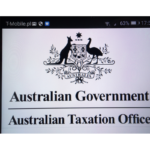Court Calls for Cancellation of Clive’s Coalmine

Queensland’s Land Court has recommended the state government refuse a licence for the proposed Galilee Coal Project on the basis that it will unjustifiably impact on “the right to life, the cultural rights of First Nations peoples, the rights of children, the right to property and to privacy and home, and the right to enjoy human rights equally”.
However, the decision is not legally binding and the Queensland government which make a final decision regarding whether a licence for the project will be granted to Waratah Coal. A company owned by outspoken billionaire Clive Palmer.
The proposal
If it goes ahead, the project will create the largest thermal coal mine in Australia, located in central Queensland, and producing nearly four times the coal of the Adani mine in the same state, as well as 1.58 gigatonnes of carbon emissions.
Since it was first proposed in 2013, the project has been fiercely opposed by climate defenders, First Nations groups with cultural links to the planned site, concerned citizens and a range of lobby groups.
The challenge
That concern culminated in a legal challenge brought earlier this year in the Land Court by activist group Youth Verdict and environmental conservation group The BimbleBox Alliance.
The challenge has been successful with the court basing its decision on the fact that coal is a public resource and can only be exploiting if this is done for the good of the public.
It found that the proposed mine did not meet that test, as the economic benefits would be outweighed to the adverse impact on both the present and future generations.
The grounds of the challenge
The challenge was made on several grounds including specific issues around climate change.
The Land Court’s president, Fleur Kingham, noted that the enormous carbon emissions produced by the mine when operational would pose an “unacceptable” risk of climate crisis for Queensland people and property that “had not been fully accounted for”.
She also found that the mine would make a significant dent in Australia’s carbon budget under the Paris agreement and it would infringe upon the human rights of First Nations Queenslanders.
“I have found that the following rights of certain groups of people in Queensland would be limited: the right to life, the cultural rights of First Nations peoples, the rights of children, the right to property and to privacy and home, and the right to enjoy human rights equally,” she said.
While the court took into consideration the projected $2.5 billion in economic benefits of the mine, Ms Kingham said these were “uncertain in a market with declining demand for thermal coal” and saw “a real prospect the mine will not be viable throughout its projected life and that not all the economic benefits will be realised.”
What is the Land Court?
The Land Court of Queensland is a specialised tribunal which hears and determines matters relating to land and natural resources. It was established under the State’s Land Court Act 2000, although unlike other courts, it comprises a president and other members. Judicial registrars may also be appointed as officers of the court to perform certain functions from time to time.
Hearings in the Land Court are usually presided over by a single member sitting alone.
Since the Land Court’s decision was made public, many have described the ruling as “landmark” – and it is – particularly in light of recent cases, including a decision made by the Federal Court earlier this year which essentially determined that the Australian Government has no duty of care to protect us, or our children, from climate harm.
The Federal Court ruling unanimously reversed a previous court finding, after an appeal by the Environment Minister Sussan Ley, determining that no single minister, nor the government, have a duty of care to protect young people from the climate crisis when assessing fossil fuel developments and are therefore not accountable for potential future impacts of decisions they make.
Getting serious about climate change
The Land Court decision with regard to Clive Palmer’s proposed mine is perhaps a positive sign that across Australia we might be able to have more balanced discussions about Australia’s aging coal infrastructure, its role in the resources and export sector and a more robust and productive conversation around renewable energy.
Much of this seemed impossible under the previous Morrison Government, during which the former Prime Minister brought a lump of coal into Parliament, as he reiterated Australia’s commitment to coal mining and fended off calls to phase out fossil fuels and get tough on climate change.
However, as important as the Land Court’s decision is, it is not legally binding. It is a recommendation only and the mine’s approval is ultimately a decision for the Queensland Government.
A government spokesperson said in a statement, “the Queensland government will carefully consider the recommendations from the Land Court”.
Clive Palmer’s legal battles continue
In the meantime, Waratah’s owner, Clive Palmer is in the middle of several other legal challenges. He recently lost a challenge in the Supreme Court to have criminal charges against him thrown out.
The charges are a result of an investigation by Australia’s corporate watchdog ASIC.
Some charges relate to a proposal to buy out investors in timeshare villas at Palmer’s Coolum resort in south-east Queensland which did not eventuate.
Clive Palmer has also been charged with two counts each of dishonestly using his position as a director and fraudulently gaining a benefit. ASIC alleges Palmer transferred the money to bank accounts held by Media Circus and Cosmo Developments ultimately for the benefit of the Palmer United Party to fund its 2013 federal election campaign.
Under section 184(2)(a) of the Corporations Act 2001, a person who is found guilty of dishonestly using his/her position as a director can be sentenced to a maximum prison term of 5 years in prison.







